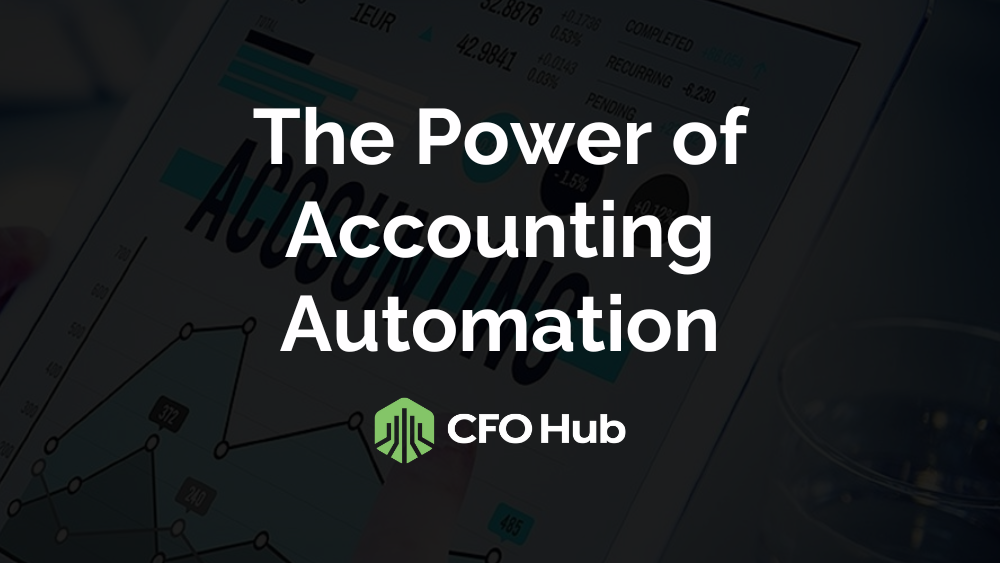Accounting is a critical function for any successful business. However, manual accounting practices can be extremely time-consuming, taking time away from more strategic initiatives. Manual practices also lead to errors, and the accounting team spends more time fixing mistakes than providing meaningful insights. Instead, adopting accounting automation streamlines core accounting operations and offers immense potential to optimize finances and unlock growth.
The Need for Accounting Automation
In today’s fast-paced business landscape, there is a growing demand to leverage accounting automation. Many small and mid-sized businesses still rely on manual processes for accounts payable, accounts receivable, month-end close, bookkeeping, and general ledger reconciliation. These tasks become increasingly cumbersome as they grow and take on more clients. Situations arise where financial data is not updated in real time, leading to limited financial visibility and decision-making bottlenecks.
Automating routine accounting work liberates human capital to focus on value-adding activities. It enables the accounting team to partner more closely with business heads to provide timely insights that enhance efficiency and growth. All businesses must assess existing accounting processes and identify opportunities for automation to unlock productivity and performance.
Benefits of Accounting Automation
A few of the key accounting automation benefits are as follows:
- Save Time: Automating manual tasks like data entry, report generation, and general ledger reconciliation cuts down time spent on accounting workflows. The accounting team can dedicate more effort to advising business strategy and planning for growth.
- Increase Accuracy: Automated processes minimize human error in collecting, entering, and processing financial data. It leads to greater accuracy of accounts and reporting. Business leaders get precise, real-time visibility of cash flows and financial performance.
- Improve Cash Flow: Automated ledger reconciliation and reporting enhance businesses’ visibility and control over cash flow. Issues like delayed customer payments or outstanding vendor bills get flagged early for prompt action.
- Enhance Reporting: Automation streamlines report generation with up-to-date financial data. Management reporting is greatly enhanced as accountants need not struggle with data collection and number-crunching. Instead, they can provide insightful analysis to guide business strategy.
- Bolster Scalability: As companies grow, manual accounting becomes a bottleneck. Automation enables easy scaling of accounting processes without blowing up budgets or headcount.
- Access Real-time Data: Automated systems reconcile accounts and generate reports with real-time data. It supports data-driven decision-making as business leaders get their finger on the pulse of financial performance.
How to Successfully Automate Your Accounting Department?
Here are a few best practices to successfully automate the accounting department and systems:
- Conduct Process Analysis: Deeply analyze current accounting workflows to identify bottlenecks and manual tasks that are ideal automation candidates.
- Set Automation Goals: Set tangible metrics like process efficiency, reporting frequency, and decision-making lag time to gauge ROI on automation investments.
- Assess Technology Landscape: Research accounting automation software providers to select the right solution tailored to current and future needs. For example, cloud-based platforms offer agility and seamless upgrades.
- Review Continuously: Continuously assess the impact of accounting automation against key metrics and enhance it further for maximum productivity.
- Avail Outsourced Accounting Services: Most importantly, leverage experienced guidance. Outsourced accounting services have established best practices for accounting automation across industries. An experienced implementation partner understands how to seamlessly integrate new technologies while maintaining continuity through periods of business transformation.
Take Your Accounting Practices to New Heights With CFO Hub
Accounting automation is pivotal for fast-growing enterprises looking to optimize productivity, achieve scalability, and enhance real-time visibility over finances. However, successfully automating your accounting department requires careful planning and consideration. And trying to do everything in-house can be cumbersome and expensive.
That’s where CFO Hub comes in. CFO Hub specializes in providing modern outsourced accounting services leveraging process automation and cloud platforms. Their virtual CFO, Controller, and accounting teams essentially serve as extensions of clients’ finance functions. As trusted advisors, they enhance accounting practices, financial management, and decision-making for competitive advantage.
Don’t let manual, time-consuming tasks hold your accounting operations back. Contact CFO Hub today and propel your business to new financial heights.
Mark is an accounting and finance professional with over a decade of experience in public accounting and consulting. As both an accountant and entrepreneur, he is passionate about helping clients strategically organize and grow their businesses to reach their goals.
Visit Mark's Expert Hub to learn more about his experience and read more of his editorial content

